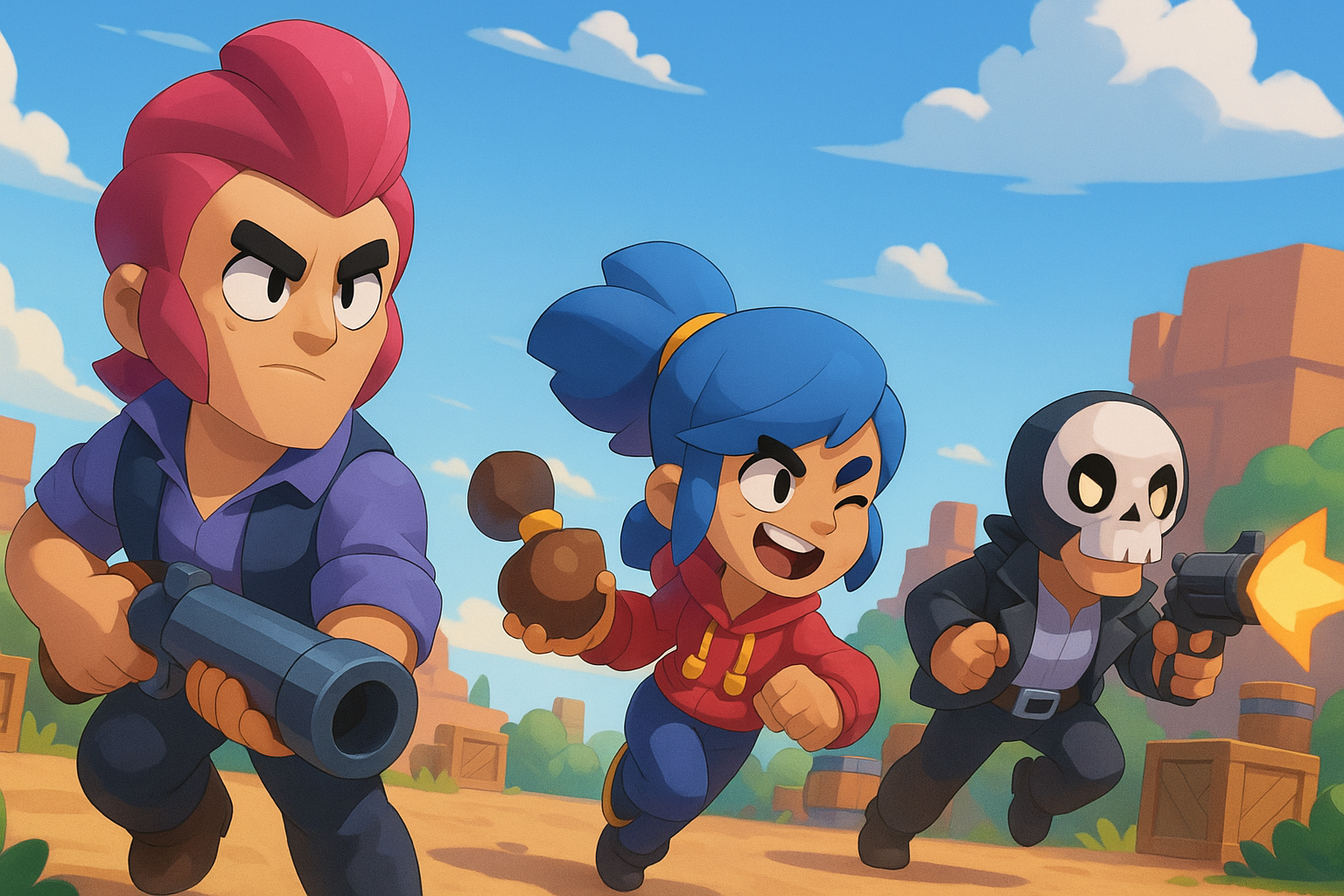Brawl Stars Launches on WeChat via Supercell-Tencent Deal

Brawl Stars Expands via Tencent’s WeChat
In a landmark move for mobile gaming, Supercell is bringing its popular title Brawl Stars to Tencent’s WeChat platform. Announced in June 2025, this integration signals a powerful new distribution strategy for mobile games in China. By embedding Brawl Stars as a mini-game within WeChat, Tencent and Supercell are opening the door to a massive user base — one that could dramatically reshape mobile engagement for top-tier games.
Why Is Brawl Stars on WeChat a Game Changer?
Tencent’s decision to integrate Brawl Stars into WeChat isn’t just another platform shift — it’s a strategic maneuver that reflects evolving mobile game distribution in China.
With over 1.3 billion users, WeChat is more than just a messaging app. It’s an ecosystem of services — payments, social media, e-commerce, and now, deeply integrated gaming. By making Brawl Stars playable within WeChat, Tencent removes friction for players, especially in a market where game approvals are tightly regulated and app store competition is fierce.
This allows Brawl Stars to bypass some of the usual hurdles of game publishing in China, including government licensing constraints, while tapping directly into Tencent’s walled garden of users.
What This Means for Supercell and Its Games
Supercell, the Finnish mobile game developer acquired by Tencent in 2016, has long sought deeper penetration in China. While games like Boom Beach, Clash of Clans, and Clash Royale have had global success, localizing and promoting games in China remains a challenge.
By turning Brawl Stars into a WeChat mini-game, Supercell benefits from Tencent’s infrastructure, localized data capabilities, and promotional strength. This integration is expected to lower user acquisition costs and increase in-game monetization through familiar in-app purchasing mechanisms already baked into WeChat.
In addition to Brawl Stars, Clash Royale is also being launched in the same format, signaling a broader strategy by Supercell to reach Chinese players in new ways.
The Future of Mobile Gaming in China
China’s mobile gaming market is estimated to surpass $50 billion in 2025. With regulatory headwinds and rising user acquisition costs, game developers are seeking new ways to maintain profitability and scale.
Tencent's WeChat mini-program strategy aligns perfectly with this need. It allows games to be launched faster, updated more frequently, and played instantly — no downloads required. The seamless experience is especially attractive to casual and mid-core gamers who don’t want to clutter their devices with large apps.
This move could signal a paradigm shift: instead of relying solely on traditional app stores, game studios may increasingly turn to ecosystem-based distribution, embedding their games where users already spend most of their time.
Inside Brawl Stars: What Players Can Expect on WeChat
The WeChat version of Brawl Stars maintains the same high-octane gameplay, vibrant graphics, and competitive design that made the standalone app so popular.
Key features include:
- A variety of game modes, from battle royale to Gem Grab, Bounty, and Brawl Ball
- Real-time 3v3 multiplayer battles and solo options
- Unlockable gadgets and star powers to enhance each Brawler’s strategy
- Progression through the Brawl Pass and premium Brawl Pass Plus
- In-app purchases using gems and WeChat Pay for a seamless experience
Additionally, the integration allows players to use their existing Supercell ID and leverage WeChat’s social features to invite friends and build teams directly in the app.
A New Frontier for Multiplayer and MOBA-Style Mobile Games
Brawl Stars is often compared to a MOBA (Multiplayer Online Battle Arena) due to its mix of strategic teamwork, unique character abilities, and objective-based play. Bringing this MOBA-lite experience into a widely used platform like WeChat is a big win for casual eSports and competitive mobile play in China.
The easier access and intuitive gameplay also make Brawl Stars a standout choice for players new to the genre, offering them a polished introduction without the steep learning curve of traditional MOBAs.
Tencent’s Strategic Advantage Grows
Tencent continues to deepen its influence over the mobile gaming ecosystem — not only through investments but also through vertical integration of platforms like WeChat.
By embedding games such as Brawl Stars, Clash Royale, and potentially Boom Beach, Tencent strengthens its position as both a distribution platform and publisher. For Supercell, this reduces overhead, increases user stickiness, and streamlines localization — all crucial for long-term success in China.
Conclusion: Brawl Stars Sets a New Standard for Game Distribution
The arrival of Brawl Stars on WeChat is more than just a regional launch — it’s a strategic shift that combines Tencent’s platform power with Supercell’s creative excellence.
With seamless access, powerful social sharing, and a robust set of features like the Brawl Pass, gadgets, and variety of game modes, Brawl Stars is now positioned to become a leader in China’s mobile gaming landscape.
As other developers observe this rollout, many may follow suit — ushering in a new era where the super app becomes the new app store.
About the Author

Miles Hollen | Editor
Miles is a tech writer and analyst passionate about the intersections of AI, gaming, and emerging technologies. With a sharp eye for innovation and a love of storytelling, he explores how breakthroughs in artificial intelligence are reshaping the gaming industry and the wider digital landscape. At GetJar.com, Miles delivers accessible insights, thoughtful reviews, and forward-looking commentary for readers eager to stay ahead in the world of tech.
